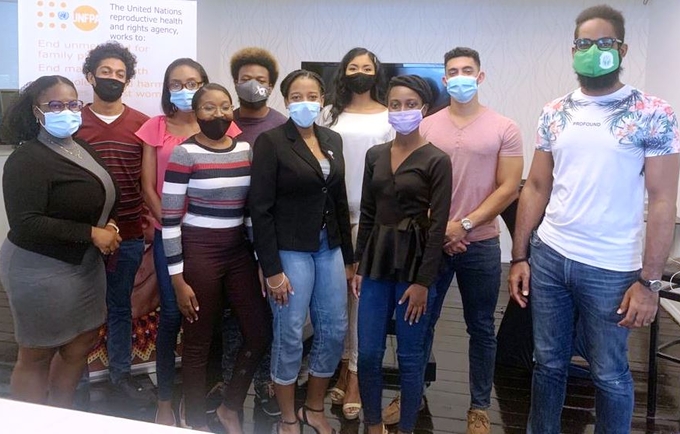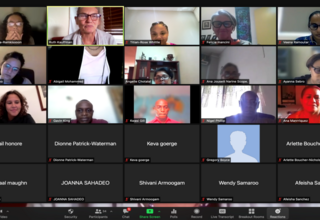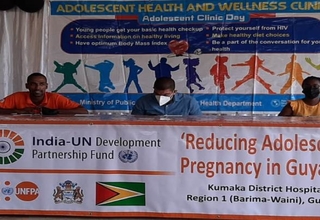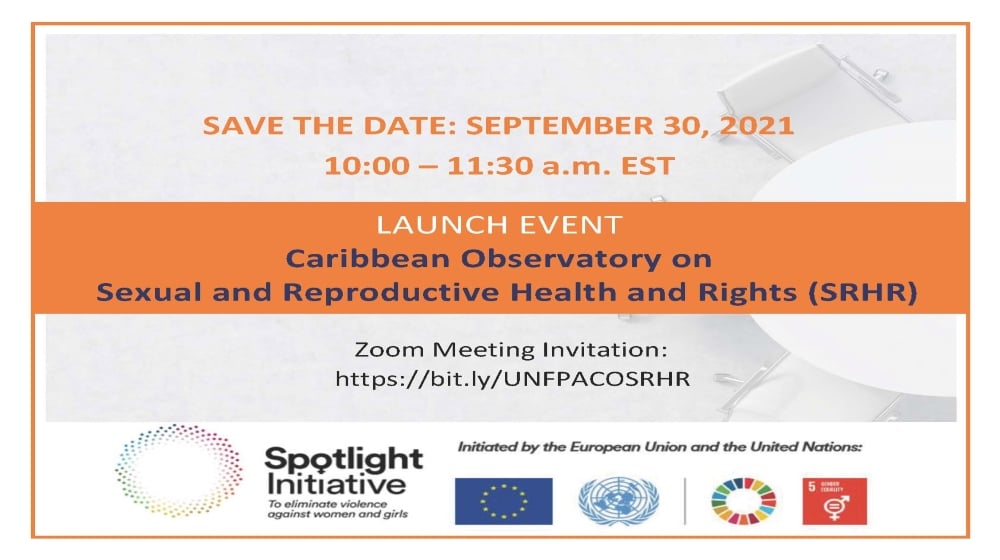With Support from the UNFPA Subregional Office for the Caribbean and other partners, the National AIDS Coordinating Committee (NACC) in collaboration with the Family Planning Association of Trinidad and Tobago (FPATT) are bolstering efforts to facilitate young people’s access to Sexual and Reproductive Health (SRH) information and services.
Governments within the English and Dutch speaking Caribbean, along with many other countries globally, have committed to the Sustainable Development Agenda and the Sustainable Development Goals. Goal three (3) seeks to ensure healthy lives and the promotion of well-being for all at all ages. In fact, target 3.7 under this goal indicates that by 2030, member states must take significant steps to “ensure universal access to sexual and reproductive health-care services, including for family planning, information and education, and the integration of reproductive health into national strategies andprogrammes.” Similarly, impact target #6 of the Regional Plan of Action for Women's, Children's and Adolescents'; Health prompts Member States to aim for a 10% reduction in the age-specific fertility rate in girls aged 10-19 years. With the passage of the Children’s Act of 2012 in 2015 in Trinidad and Tobago, the age of sexual consent was raised to 18 and the Act stipulated mandatory reporting requirements for adults who become knowledgeable of minors’ sexual activity. This new legislation, although intended to protect minors from abuse, also potentially limits minors’ access to SRH services, given mandatory reporting requirements. As a result, healthcare providers are reluctant to provide services to those they believe to be under 18 and young people are reluctant to seek services.
The NACC in its role of creating an enabling environment to advance the goal of ending AIDS by 2030 partnered with the UNFPA and FPATT to implement the 2019 study on ‘Legal Barriers that affect Adolescent Access to Sexual and Reproductive Health Services in Trinidad and Tobago’. The study was undertaken to generate evidence on the factors that facilitate as ;well as hinder adolescents’ access to Sexual and Reproductive Health (SRH) information and services in the current legislative context. The study sought to provide evidence on the impact of limited access to SRH information and services on minors, which was defined as adolescents under the age of 18. Access to SRH information and services is seen as a major prevention pillar of this age group. It should be noted that the challenge of minors’ access to SRH information and services is not unique to Trinidad and Tobago, and there are a range of strategies and guiding principles based on regional and international models that can be adapted to the Trinidad and Tobago context to facilitate the best outcomes for adolescents. An amendment to the Children Act is one strategic pathway to ensuring that both child protection and improved SRH outcomes for young people are safeguarded.
With these goals in mind, the National AIDS Coordinating Committee (NACC) in close collaboration with UNFPA, the Family Planning Association of Trinidad and Tobago (FPATT) have initiated the planning and implementation of information sharing and sensitization workshops with key stakeholders, including health workers, parents, teachers and parliamentarians. Further engagement with stakeholders will continue to support the change in legislation.




